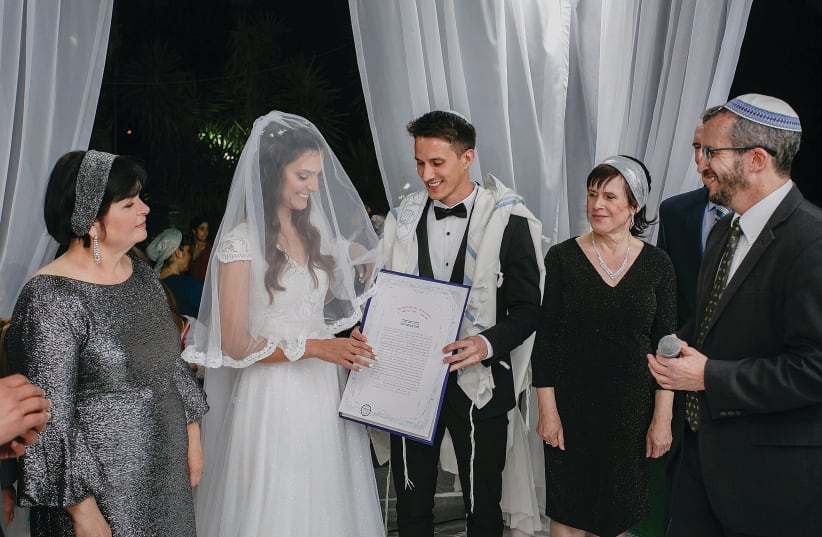In a landmark ruling last week, the regional court in Lod determined that remote civil marriage over Zoom will be recognized in Israel. The case on hand relates to a couple in Israel who had a civil marriage ceremony based in Utah over Zoom. These video weddings have become more common as the world has found ways to manage a global pandemic and have been used by Israelis during the past few years when air travel was a challenge.
The Interior Ministry had registered several of these weddings until Arye Deri, the ultra-Orthodox interior minister at the time, directed them to cease. But last week, the court directed the registrar to accept the couple’s application and register them as married.
For decades, Israel has maintained the facade of no civil marriage in Israel while accepting civil unions performed abroad for registration purposes. This technical sleight of hand is how our country has chosen to finesse the problematic fact that marriage in Israel is controlled exclusively by its religious institutions. This means that Israeli citizens are not free to marry whom they choose and how they choose and that hundreds of thousands of Israelis are not eligible to marry at all because they are not identified as belonging to any religion.
But in truth, civil marriage, for gay couples as well, has only been a plane ticket to Cyprus away. As of last week’s court decision, it seems couples can attend their ceremony abroad digitally and attain a valid civil marriage license without leaving the country.
While nothing much has changed, Israeli couples’ ability to have a recognized civil wedding in Israel online with Utah only highlights the absurd laws of marriage in Israel. The rules governing marriage in Israel date back to the Ottoman Empire and are utterly bizarre in modern democracies.

For example, the British Empire instated civil marriage in 1836, France, following the French Revolution, in 1792, and Germany in 1875. So while we are well at home in our standards with many Middle Eastern countries, it is not something Israel, a modern democracy, should be proud of.
Why the Rabbinate insists on religious marriage
The Chief Rabbinate and mainstream Orthodox positions in Israel continue to oppose the option of civil marriage. They maintain that this prevents intermarriage and other religiously prohibited unions and ensures that divorce is religiously valid. But this is simply not true. No one breaks off a relationship or engagement because of these laws. And if civil marriage existed, couples who chose an Orthodox wedding could still be referred to an Orthodox divorce.
It is unthinkable to me that a country can allow any of its citizens to become dependent on a foreign entity for such a basic need and right as marriage. This is discriminatory, and causes tremendous pain and alienation, not to mention considerable expense. The rabbinate’s position portrays a religion obsessed with controlling others even in the most personal of ways. As an Orthodox rabbi, I must clearly state, that this is not my religion.
Chuppot, the organization I have founded, challenges the monopoly of the ultra-Orthodox rabbinate over marriage in Israel by performing non-coercive halachic weddings outside of the rabbinate. We are part of a significant movement fighting for more religious freedom in Israel. Thanks to these institutions, hundreds of couples marry privately in Israel every year, following their own standards.
It is absurdity at its most extreme that a traditional huppah in Israel is not recognized while a non-Jewish video ceremony abroad is. It is for this reason I applaud the court’s decision. Not because it changes much on the ground, but because it provides much clarity toward the need for change.
The writer is the founder of Hashgacha Pratit/Chuppot, a nonprofit organization fighting the Chief Rabbinate’s monopoly over religious services and personal-status matters in Israel.
